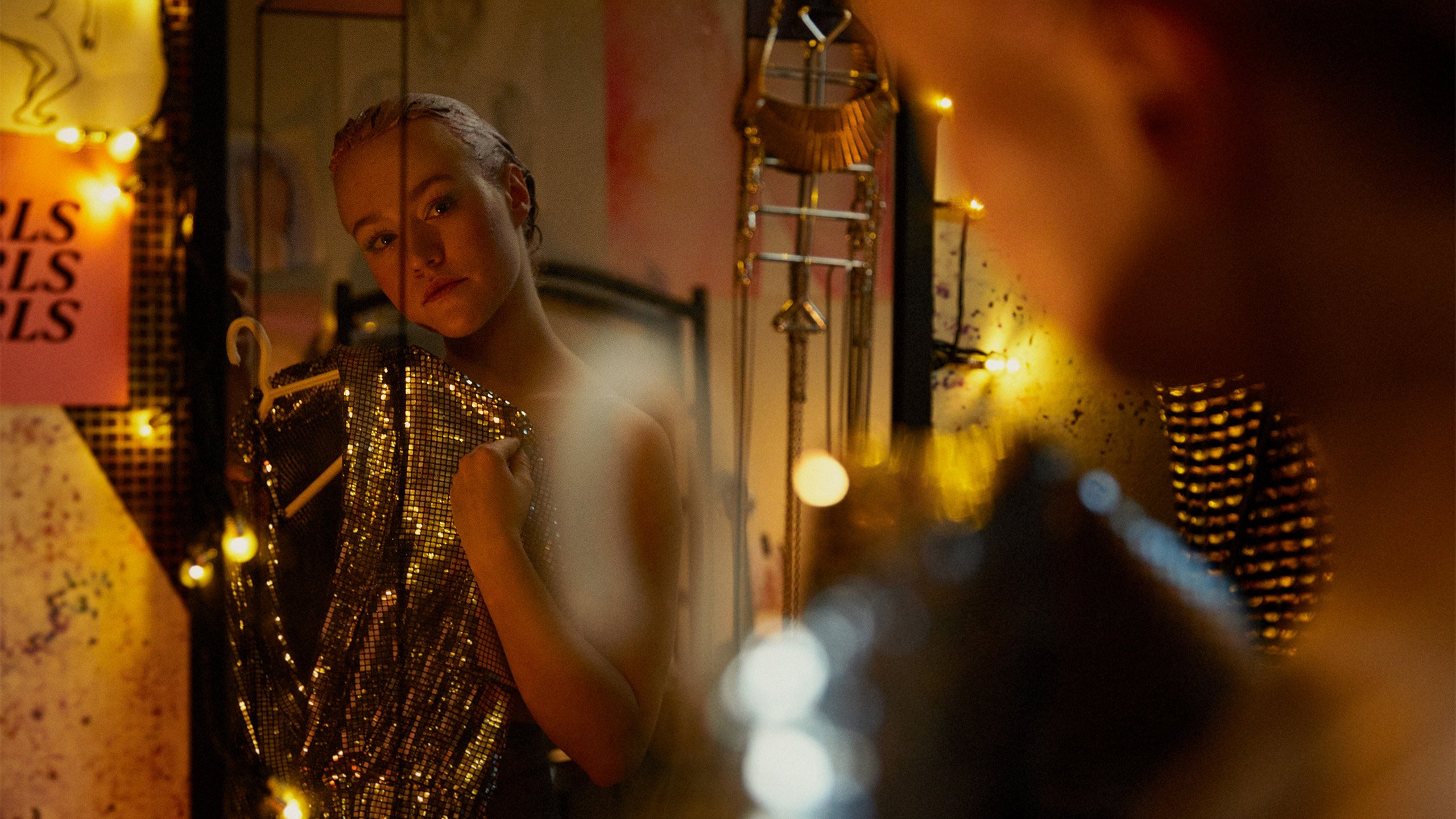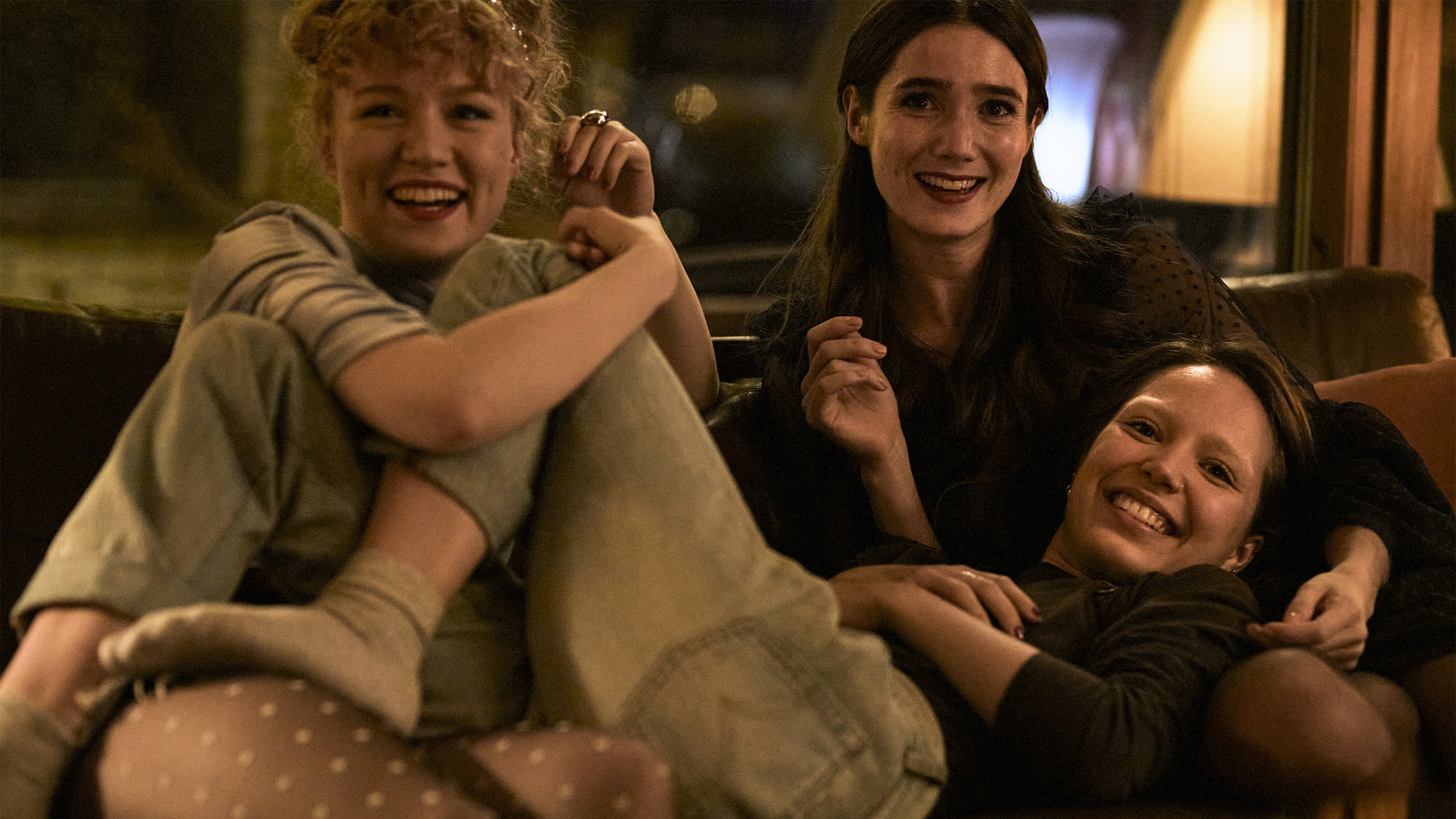When it comes to tales of teen girls finding themselves, they are almost always presented in a rather regressive, repressed environment. Not that I claim that the world isn’t that way, but at this point in time, such stories often get tiresome when freeing themselves from this burden of an environment becomes the sole purpose of the story. Keeping that in mind, Finnish filmmaker Alli Haapasalo’s radical debut film ‘Girl Picture (Tytöt tytöt tytöt)’ truly stands out just for allowing the girls in the story to be seen in a world where they are not constantly hassled for what they are. Instead, their conflicts become more personal, albeit overly familiar yet again.
The film takes place over the course of three Fridays. Wherein choosing Friday as a standpoint is a clever move by writers Ilona Ahti and Daniela Hakulinen. It doesn’t just allow them to explore the three girls at the center of the story better, but also slyly cuts the ‘American-school’ cliches out of the story. They introduce us first to the volatile Mimmi (played by Aamu Milonoff), who feels like one of those perpetually pissed-off kids. That is until we meet her best friend and confidant Rönkkö (Eleonoora Kauhanen) and get to see her side of things.
Related to Girl Picture – 20 Must-See Movies at the Sundance Film Festival, 2022
The two girls are of course really close to each other and Mimmi who is a misfit, doesn’t feel like one anymore. They understand each other and their bond is visible from far off. The duo works together after school at a food court smoothie kiosk. Their routine there involves casually looking out for each other while confiding over things like Rönkkö’s inability to enjoy sex or what gift should Mimmi give to her little stepbrother.

Parallelly, director Haapasalo also introduces us to Emma (Linnea Leino), a hard-working ice-skater who is under tremendous pressure for her upcoming European Championship. For reasons that she cannot pin-point, she is unable to perform her ‘triple lutz’ (a triple jump that usually seals off as a finale to an ice-skating performance).
The three girls collide in the first act, acutely titled ‘First Friday.’ Two of them, namely Emma and Mimmi, kick off on the wrong foot, before realizing that love is, in fact, in the air. Rönkkö, on the other hand, decides to take things in her hands and ravage into the party scene, trying to find the one true person who can introduce her to the secret of ‘sexual pleasures.’
Also, Read – The Radical Love in Bhaskar Hazarika’s ‘Aamis’
Girl Picture, as I mentioned above, takes a radical approach to its coming-of-age tropes. There’s no kind of external conflict here where the girls have to worry about ‘some guy’ who is stalking them on one of their late-night outings. There are no parents being wary of their child’s homosexual leaning or any sort of repression shown from their peers at school, in spite of them being outcasts. There isn’t event a big outburst when one of the characters can be seen feeling low and dejected.
Instead, the focus of the film is on more complex issues such as identity, sexuality, and internal turmoil. Haapasalo makes sure she delves into her team of fabulous teenagers with the precision of looking at the actual feminine side of being young. In only her second feature-length film, Haapsalo manages to capture the euphoria of a young generation, while also allowing them to understand their own comforts and likings.

However, while her direction is assured and enigmatic and her ways to deal with the feeling of being seen unconventional, this look at a fragment of what these lives are about, doesn’t necessarily help with the character’s overall arcs. For instance, you do understand where Mimmi’s lack of trust and need to ghost people comes from, but since we see so little of all of them in so little time, the impact of this suddenness of her reactions doesn’t feel earned.
While I adore the ‘three Friday structure for the narrative, I wasn’t exactly pleased with how crowded the film is with songs. I know that they are meant to punctuate the exhilarating lives of young people, but an overabundance of them just keeps shifting the focus away from the characters even further.
Also, while the director’s lens mostly sees the tale through Mimmi and Emma, it is Rönkkö’s story that really comes off as the most interesting. Her plot thread is rigged with blisteringly funny moments that capture the issue of ‘possible asexuality’ in an intriguing manner. So much so, that I would pay money to see a stand-alone movie about her. I mean, not many teenage movies dive into this issue, and I would recommend Girl Picture just for doing this bit alone.





![Sivapuranam [2015] MUBI Review – A strange isolated world of a loner](https://79468c92.delivery.rocketcdn.me/wp-content/uploads/2020/05/The-Strange-Case-of-Shiva-Sivapuranam-2015-Review-768x432.jpg)

![Village of the Damned [1960] Review: Beware The Stare That Bewitches!](https://79468c92.delivery.rocketcdn.me/wp-content/uploads/2018/09/village-of-the-damned-screenshot-768x432.jpg)